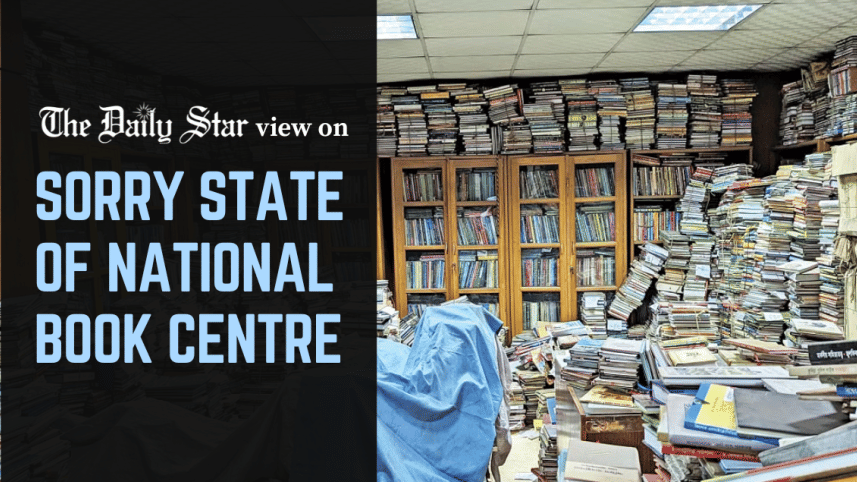We need a vibrant library culture

It is disheartening to see the continued plight of the state-run Jatiya Grantha Kendro, or National Book Centre, which is responsible for overseeing non-government libraries and promoting reading. According a report by this daily, the centre has been failing to fulfil its mandate due to poor infrastructure, a shortage of manpower and resources, and a lack of public awareness. Everything about it seems to be ill-conceived and poorly executed, starting from the shabby, largely nondescript building on which it is housed to its lack of promotional activities to the way it engages with the recipients of its annual grants.
Its sorry state is perhaps best reflected in its own library, which has over 11,000 books, including rare reference materials. However, very few people visit the library on Gulistan's Bangabandhu Avenue, and the librarian himself admits that he hasn't seen any readers in the last few years. The disorganised arrangement of books, with stacks of old newspapers and rare books piled haphazardly in dark corners, is an appalling sight. The centre couldn't archive them systematically, let alone digitise them, even after 28 years of its establishment.
In addition to the poor management of its own library, the centre is also hamstrung by various problems in its handling of non-government libraries. For one, the financial assistance given to listed libraries is woefully insufficient. The annual allocations, divided into categories A, B, and C, barely cover a couple of months' operational costs for them, leaving them financially strained and affecting their services. The bureaucratic hurdles involved in accessing the funds further compound their difficulties. There are also allegations of favouritism and lack of quality control when it comes to giving them books. Often, political books of questionable quality, written by ruling party leaders and bureaucrats, dominate the offerings, while books of diverse genres and perspectives are neglected.
What all this shows is how a vital institution of the state is being undermined by neglect, mismanagement and a lack of foresight and resources. This is an affront to Bangladesh's vision of building a knowledge-based society for a better future. To reach that goal, we must have a strong, vibrant library culture that promotes reading and intellectual growth. We urge the Ministry of Cultural Affairs to properly equip and staff the National Book Centre so that it can deliver its mandate.



 For all latest news, follow The Daily Star's Google News channel.
For all latest news, follow The Daily Star's Google News channel. 


Comments